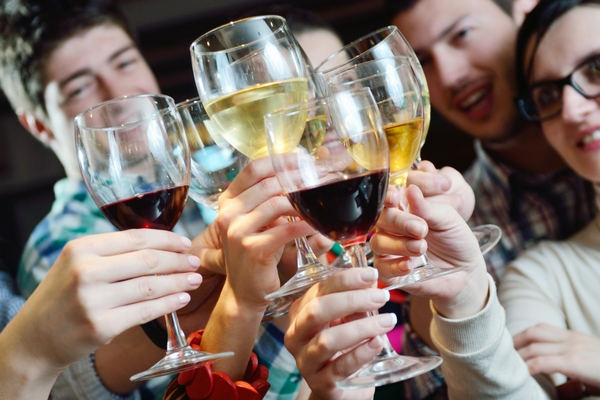At certain times of the year, like Christmas and New Year, bubbly or your favourite drop seem to be free flowing. Why say no to this? But if you do want to say no, how do you do it? Alcohol has become part of every special occasion, and whilst a glass or two is ok, more than this might leave you feeling sluggish or hungover the next day.
How much alcohol is ok?
Unlike most of my answers, this one is not going to be “it is individual”. Whilst I know many people will say I can handle my alcohol well, or I can drink more than others, these responses don’t consider how the alcohol is changing their mind and body. These changes occur over time and you might not know that they are happening. I am not trying to be the party pooper here, but it is important to understand that too much can produce harmful results.
The current recommendation for healthy men and women in Australia is to drink no more than two standard drinks of alcohol on any day, to reduce the lifetime risk of harm from alcohol-related disease or injury.
What is a standard serve?
A standard serve in Australia contains 10g of alcohol.
- One can or stubbie of full strength beer is 1.4 standard serves
- 100ml of wine (13.5% alcohol) is one standard serve
- 30ml nip of spirits is one standard serve
- One can of spirits (7% alcohol) is about 1.6 to 2.4 standard serves
The National Health and Medical Research Council has a useful guide on their website, which you can obtain here.
How to say no to alcohol
“It is possible to change and remain socially at ease.”
Alcohol is enjoyed as part of social occasions, at celebrations and for relaxation. Because it is often viewed that you need to drink to be sociable, the pressure can be hard to manage. But it is your right to choose how much you drink. It is possible to be sociable and say no. This is a complex challenge for people and I wrote about it in Eating for You. Eating for You provides a number of case studies and reflection exercises to assist you to make changes and remain socially at ease.
Extract from Eating for You
“Reducing or ceasing alcohol presents a big challenge in our society. Alcohol is viewed as part of the occasion and something that is fun and enjoyable. Reducing alcohol is such a challenge that it forms a part of many group and individual health discussions. At one health retreat I attended the main strategies reported as working were to say, “I’m no longer drinking alcohol”, “I’m not drinking alcohol at the moment” or to have only one glass and sip slowly. These are approaches used by both men and women.
Often we are encouraged to say why we are choosing not to drink. I suggest you to be honest with your responses e.g. “I’m resting my liver” or the trendy phrase “I’m on a detox”, “Its not good for my health”, “I have been advised to stop by my doctor”, “I am on a course of medication”, “I am the driver tonight”. At first this might be difficult, but in my experience over time your friends will accept that you may choose not to drink alcohol.
The people close to us want us to achieve what is best for us. These are the people we need to ask for support as we are introducing new behaviours into our life. Asking for help may be difficult for you. I know that there was a time in my life that I found this hard too. Then I realised that asking for help gave someone else the opportunity to give and to share.”
Non-alcoholic party drinks
It is possible to celebrate without, or with less, alcohol. In fact, it really is a situation where “less is more”. Enjoying an occasion is about the people you are with, not what you drink. And as mentioned in the extract from Eating for You, the people close to us want us to be happy and healthy.
In fact, it really is a situation where “less is more”.
Next week I will share my favourite non-alcoholic drink suggestions that add colour and enjoyment to dinners and parties.

My husband and I have been married nearly 38 years, and during the entire time we both chose not to drink alcohol. It has certainly presented some challenges even amongst our immediate family and friends. They were embarrassed, questioned us, and tried to jokingly coax us into drinking. It was a gradual process but they now accept our decision. As it turned out recently it was the correct decision for my husband as his doctor said if he had been a drinker he would have been dead with cirrhosis of the liver. Another answer I suggest is simply to say, “I choose not to drink”; this seems to work for us. Have a great festive season.
Thanks Darlene for sharing your experience as a non-drinker and the subsequent health benefits for your husband. Saying “I choose not to drink” is definitely another option. Being honest is the best way to go, but everyone has to find the most comfortable way to express their choice.